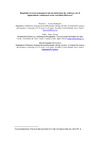Please use this identifier to cite or link to this item:
https://accedacris.ulpgc.es/jspui/handle/10553/75687
| DC Field | Value | Language |
|---|---|---|
| dc.contributor.author | García-Rodríguez, Francisco J. | en_US |
| dc.contributor.author | Dorta Afonso, Daniel | en_US |
| dc.contributor.author | González-de-la-Rosa, Manuel | en_US |
| dc.date.accessioned | 2020-11-18T12:39:01Z | - |
| dc.date.available | 2020-11-18T12:39:01Z | - |
| dc.date.issued | 2020 | en_US |
| dc.identifier.issn | 0278-4319 | en_US |
| dc.identifier.other | Scopus | - |
| dc.identifier.uri | https://accedacris.ulpgc.es/handle/10553/75687 | - |
| dc.description.abstract | The present study examines the effects of diversity management on hospitality employees’ organizational commitment and their job satisfaction taking into account individual differences. A representative sample of hotel workers were surveyed in the Canary Island, one of the main tourist destinations in the world, which receives over fifteen million tourists a year. Using moderated mediation analyses, the study confirms our hypothesis that employees’ perceptions of diversity management have a positive and significant direct effect on job satisfaction. In addition, an indirect effect through employees’ organizational commitment was found. Results support the moderating role of age, but not of ethnic origin or gender on the proposed mediation. From a managerial perspective, hoteliers should be encouraged to consider diversity management when they plan their human resource policies due to its positive effects on employees’ job satisfaction and organizational commitment. | en_US |
| dc.language | eng | en_US |
| dc.relation.ispartof | International Journal of Hospitality Management | en_US |
| dc.source | International Journal of Hospitality Management[ISSN 0278-4319],v. 91, (Octubre 2020) | en_US |
| dc.subject.other | Age | en_US |
| dc.subject.other | Ethnic Origin | en_US |
| dc.subject.other | Gender | en_US |
| dc.subject.other | Hospitality Diversity Management | en_US |
| dc.subject.other | Job Satisfaction | en_US |
| dc.subject.other | Organizational Commitment | en_US |
| dc.title | Hospitality diversity management and job satisfaction: the mediating role of organizational commitment across individual differences | en_US |
| dc.type | info:eu-repo/semantics/Article | en_US |
| dc.type | Article | en_US |
| dc.identifier.doi | 10.1016/j.ijhm.2020.102698 | en_US |
| dc.identifier.scopus | 85091797940 | - |
| dc.contributor.authorscopusid | 7004619946 | - |
| dc.contributor.authorscopusid | 56725788200 | - |
| dc.contributor.authorscopusid | 57211082521 | - |
| dc.relation.volume | 91 | en_US |
| dc.investigacion | Ciencias Sociales y Jurídicas | en_US |
| dc.type2 | Artículo | en_US |
| dc.utils.revision | Sí | en_US |
| dc.date.coverdate | Octubre 2020 | en_US |
| dc.identifier.ulpgc | Sí | en_US |
| dc.contributor.buulpgc | BU-ECO | en_US |
| dc.description.sjr | 2,321 | |
| dc.description.jcr | 9,237 | |
| dc.description.sjrq | Q1 | |
| dc.description.jcrq | Q1 | |
| dc.description.ssci | SSCI | |
| dc.description.erihplus | ERIH PLUS | |
| item.fulltext | Con texto completo | - |
| item.grantfulltext | open | - |
| crisitem.author.dept | GIR IDeTIC: División de Organizaciones, personas y conocimiento | - |
| crisitem.author.dept | IU para el Desarrollo Tecnológico y la Innovación en Comunicaciones (IDeTIC) | - |
| crisitem.author.dept | Departamento de Economía y Dirección de Empresas | - |
| crisitem.author.orcid | 0000-0002-9955-1202 | - |
| crisitem.author.parentorg | IU para el Desarrollo Tecnológico y la Innovación en Comunicaciones (IDeTIC) | - |
| crisitem.author.fullName | Dorta Afonso, Daniel | - |
| Appears in Collections: | Artículos | |
SCOPUSTM
Citations
65
checked on Jun 8, 2025
WEB OF SCIENCETM
Citations
62
checked on Jan 25, 2026
Page view(s) 5
114
checked on Jan 10, 2026
Download(s)
20
checked on Jan 10, 2026
Google ScholarTM
Check
Altmetric
Share
Export metadata
Items in accedaCRIS are protected by copyright, with all rights reserved, unless otherwise indicated.
